The Importance of Patient Privacy in Online Marketing
Balancing Innovation and Ethics in Healthcare Digital Outreach


The Importance of Patient Privacy in Online Marketing
Setting the Context: Why Privacy Matters
In an increasingly digital healthcare landscape, online marketing offers opportunities to engage and educate patients. However, safeguarding patient privacy remains a fundamental ethical and legal obligation. This article explores the critical importance of patient privacy in online marketing, examining the laws, best practices, challenges, and ethical considerations vital for maintaining trust and compliance.
Understanding the Significance of Patient Privacy in Digital Marketing
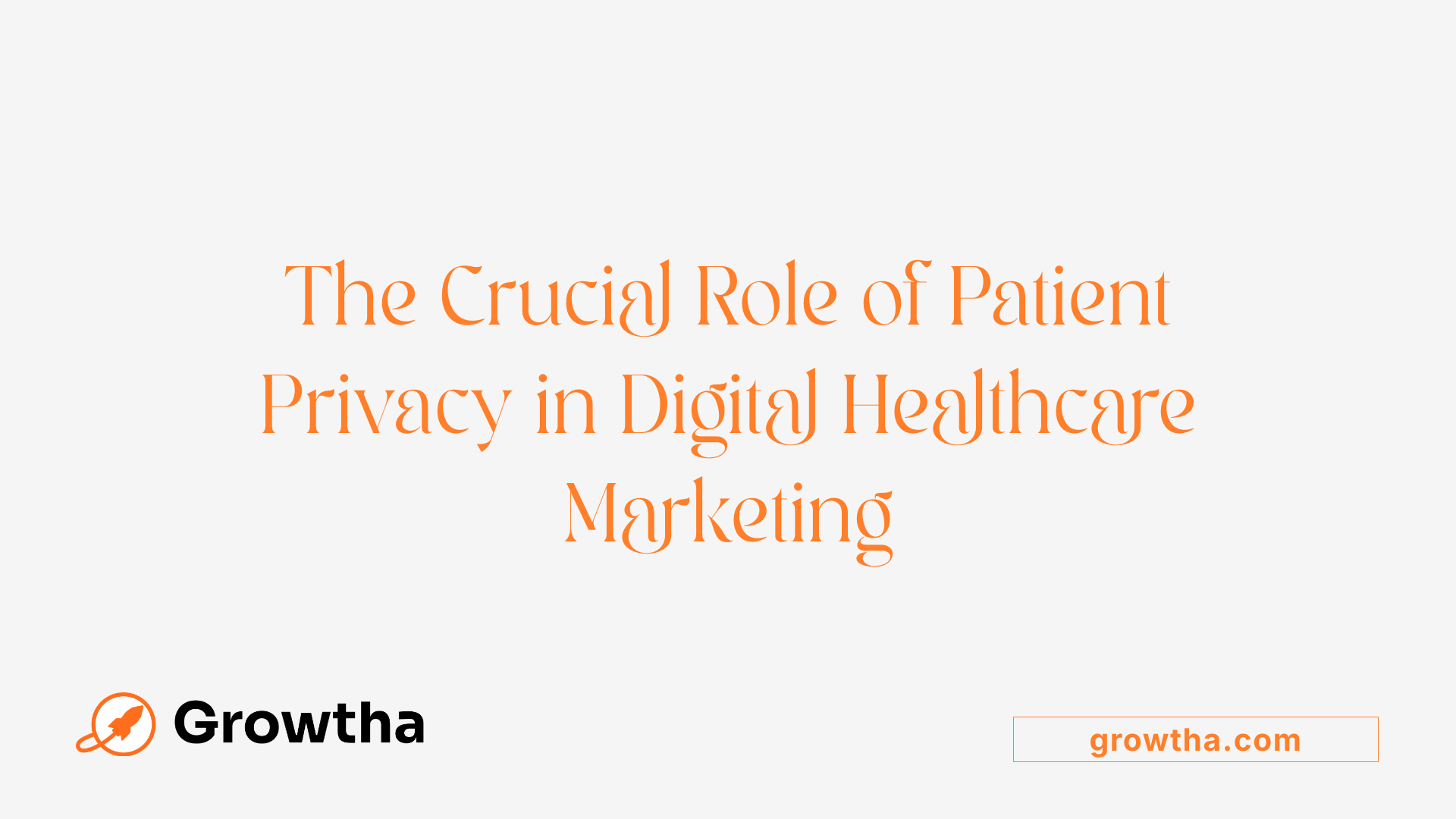
Why is online privacy important for individuals?
In the realm of healthcare, patient privacy is crucial because it safeguards sensitive health information, ensuring trust between patients and providers. Patients entrust healthcare professionals with details about their medical histories, treatment plans, and personal data, expecting confidentiality and respectful handling.
Protecting such information encourages honest communication, which is essential for accurate diagnosis and effective care. When privacy is compromised, patients may feel reluctant to share vital health details, negatively affecting treatment outcomes.
The increasing use of digital platforms introduces risks like data breaches, unauthorized access, and surveillance, which can erode trust and harm individuals. A significant data breach exposing billions of records has heightened concerns about security and privacy. Many patients are now hesitant to share health data, especially with insurance companies or pharmacies, fearing misuse or unauthorized disclosure.
Laws like HIPAA in the US, GDPR in Europe, and state-specific regulations such as CCPA mandate strict protections for protected health information (PHI). Healthcare providers must comply with these rules by implementing best practices such as encryption, secure storage, informed consent, staff training, and regular security audits.
Failure to safeguard patient data not only risks legal penalties—including substantial fines and criminal charges—but also damages reputation and trust. Moreover, breaches can lead to discrimination, social stigma, and financial harm for patients.
Digital marketing strategies must respect privacy regulations by anonymizing data, obtaining explicit consent, and using secure communication channels. This balance between effective outreach and privacy protection enhances patient confidence and supports ethical healthcare advertising.
In summary, patient privacy in digital health marketing isn't just a legal obligation; it embodies respect for individual worth, minimizes risks of misuse, and sustains the integrity of the patient-provider relationship.
| Aspect | Details | Additional Information |
|---|---|---|
| Data Sensitivity | Includes medical history, treatments, PII | Highly targeted for hackers, value in black markets |
| Legal Protections | HIPAA, GDPR, CCPA, Colorado Privacy Act | Enforce compliance, avoid penalties |
| Privacy Risks | Data breaches, re-identification, unauthorized sharing | Can lead to distrust and harm |
| Best Practices | Encryption, staff training, secure systems | Essential for compliance and trust |
| Future Challenges | AI, big data, emerging tech | Require updated policies and stakeholder cooperation |
Maintaining patient privacy in healthcare marketing is fundamental to fostering trust, ensuring legal compliance, and respecting individual dignity. As digital transformation accelerates, ongoing vigilance and commitment to ethical standards are paramount.
Legal Frameworks Shaping Patient Data Handling
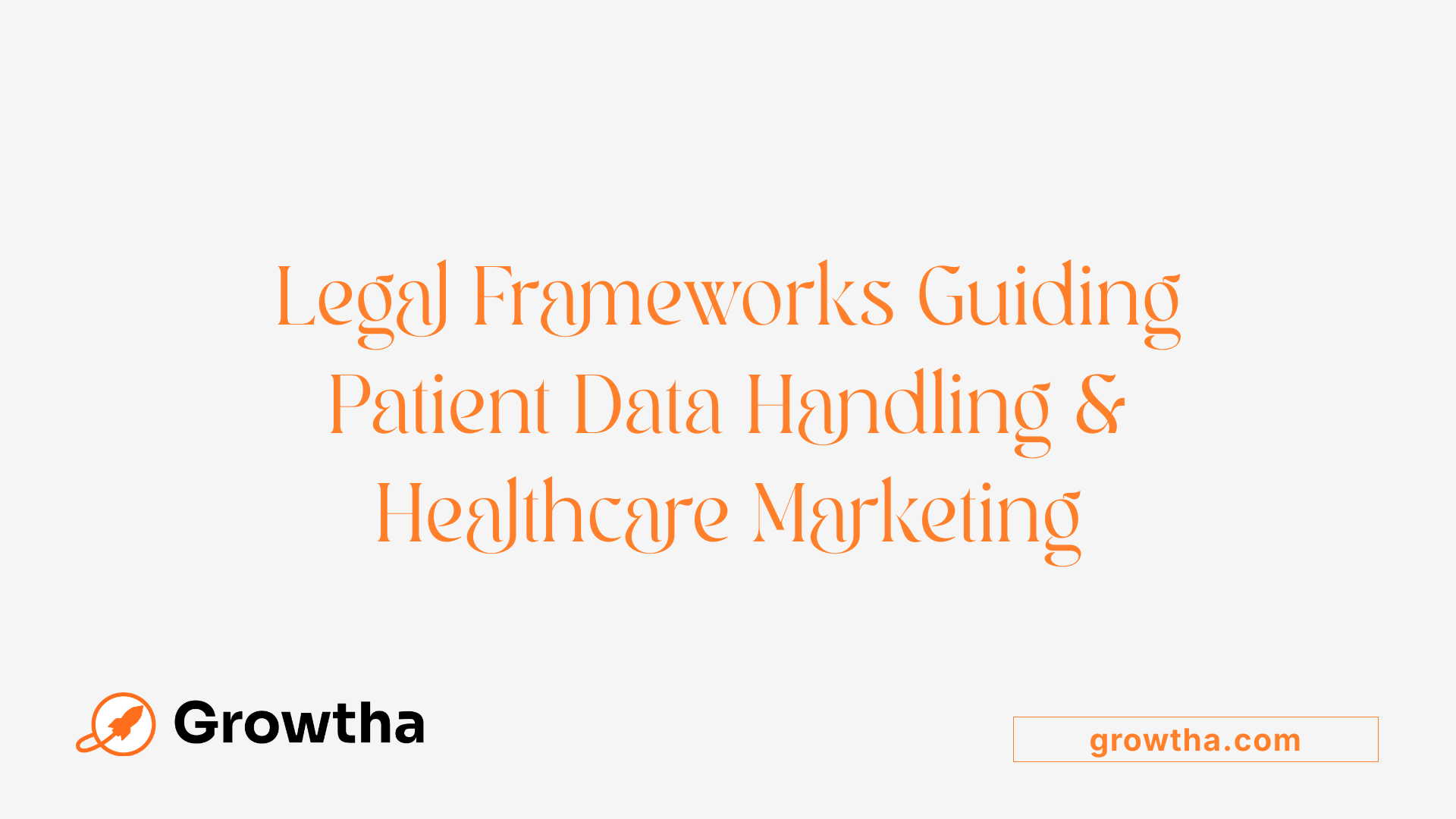
How do privacy laws and regulations impact healthcare marketing strategies?
Privacy laws and regulations like HIPAA, GDPR, CCPA, and various state statutes deeply influence healthcare marketing practices. These laws impose strict limitations on how patient data can be collected, used, and shared. Healthcare organizations must implement privacy-first approaches, such as anonymizing or pseudonymizing data, to ensure compliance.
Strict consent management is essential. For example, explicit patient authorization is often required before using protected health information (PHI) for marketing purposes. This requirement fosters transparency, building trust between providers and patients by clearly communicating how their data will be used.
Legal obligations also demand secure handling of health data. Healthcare providers need to adopt secure encryption, access controls, and regular security audits to prevent breaches. Collaboration with legal teams ensures that marketing campaigns align with current regulations and avoid costly penalties.
These regulations encourage a shift toward reliable first-party data collection — data obtained directly from patients with proper consent — rather than reliance on third-party data sources. This strategy not only ensures compliance but also enhances the credibility of marketing efforts.
Moreover, privacy laws impact the content shared publicly or via digital channels. Sharing patient testimonials or health stories must be done with pseudonyms or anonymous data to respect confidentiality.
Ultimately, these legal frameworks emphasize balancing effective outreach with the ethical obligation to protect patient rights. They compel healthcare marketers to adopt transparent, secure, and compliant practices that foster trust and uphold the integrity of the healthcare system.
| Regulation | Scope | Requirements | Impact on Marketing |
|---|---|---|---|
| HIPAA | U.S. federal law for healthcare entities | Consent, encryption, access controls, breach notification | Limits use of PHI, mandates secure data handling |
| GDPR | European data protection regulation | Explicit consent, data rights, transparency | Restricts cross-border data sharing, emphasizes right to be forgotten |
| CCPA | California consumer privacy law | Opt-in/opt-out rights, transparency disclosures | Enhances patient control over personal data |
| State Laws | Vary by state, e.g., Colorado Privacy Act | Consent, data minimization, right to delete | Adds regional compliance requirements |
Understanding and implementing these legal standards is crucial for healthcare organizations to avoid penalties, protect patient trust, and maintain ethical marketing practices.
Balancing Marketing Initiatives with Patient Privacy
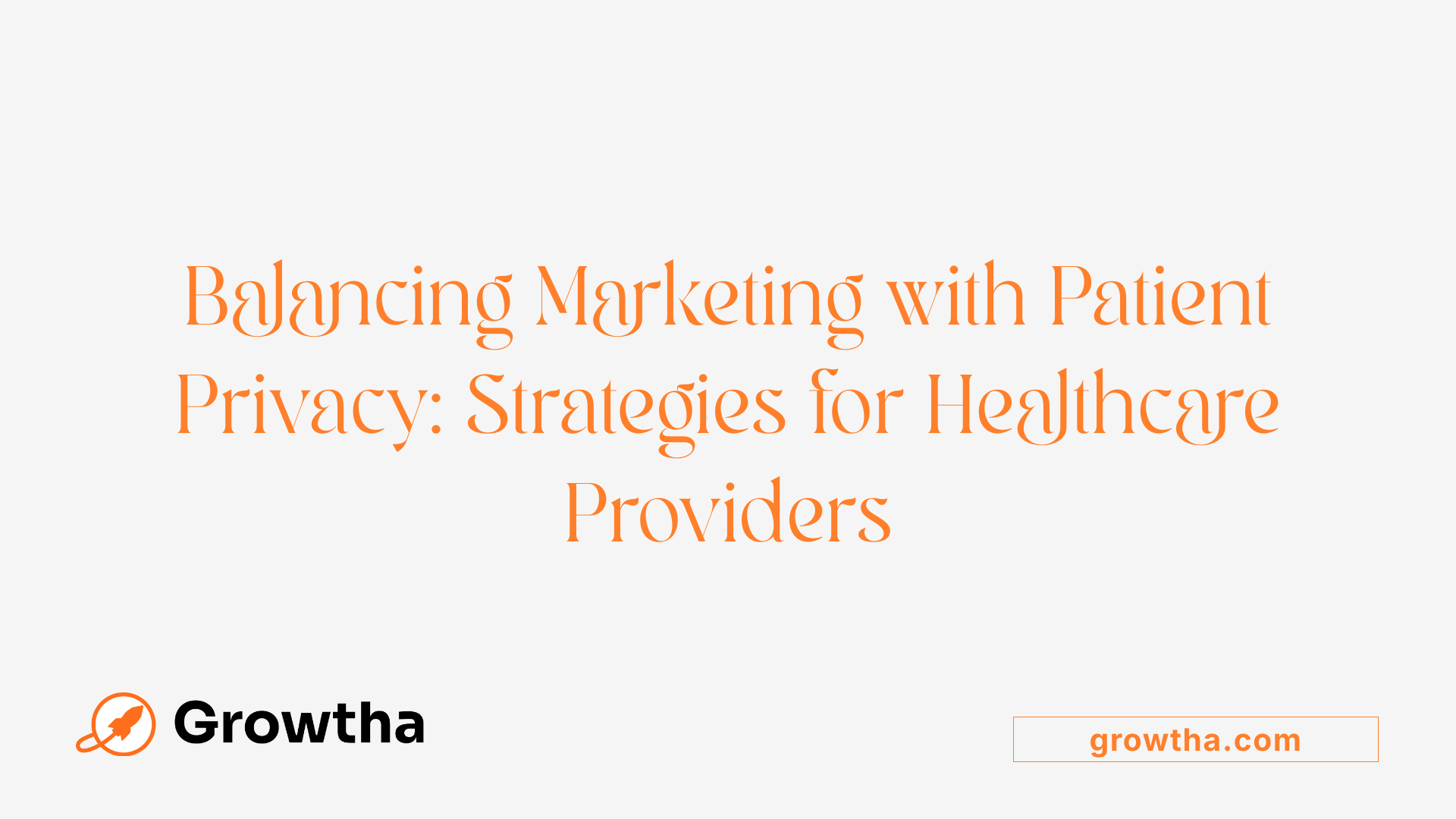
How can healthcare providers balance marketing efforts with patient privacy concerns?
In the digital age, healthcare organizations face the challenge of promoting their services while respecting patient rights and privacy. To strike this balance, providers must prioritize compliance with laws like HIPAA in the U.S. and GDPR internationally, which set standards for protecting protected health information (PHI).
One of the most effective strategies is obtaining explicit consent from patients before sharing their data, testimonials, or health stories in marketing campaigns. Transparency is crucial; clear privacy notices and options for patients to control their data foster trust and empowerment.
Using anonymized or de-identified data is another vital approach. This method allows organizations to analyze and utilize data for personalized marketing without risking individual privacy breaches. Data sharing should always be first-party, collected directly from patients in secure, trustworthy environments.
Implementing robust security measures also plays a significant role. Regular audits, encryption, secure servers, and strict access controls help prevent data breaches and unauthorized access. Partnering with HIPAA-compliant vendors and platforms ensures that data handled in marketing initiatives meet industry standards.
Open communication and transparency about data use reassure patients and build confidence. By respecting their preferences and rights, healthcare providers can develop marketing strategies that are both effective and ethical.
Ultimately, fostering a culture of privacy and responsibility not only mitigates legal risks but also strengthens the trust necessary for meaningful patient engagement and loyalty.
Best Practices for Securing Patient Data in Digital Campaigns
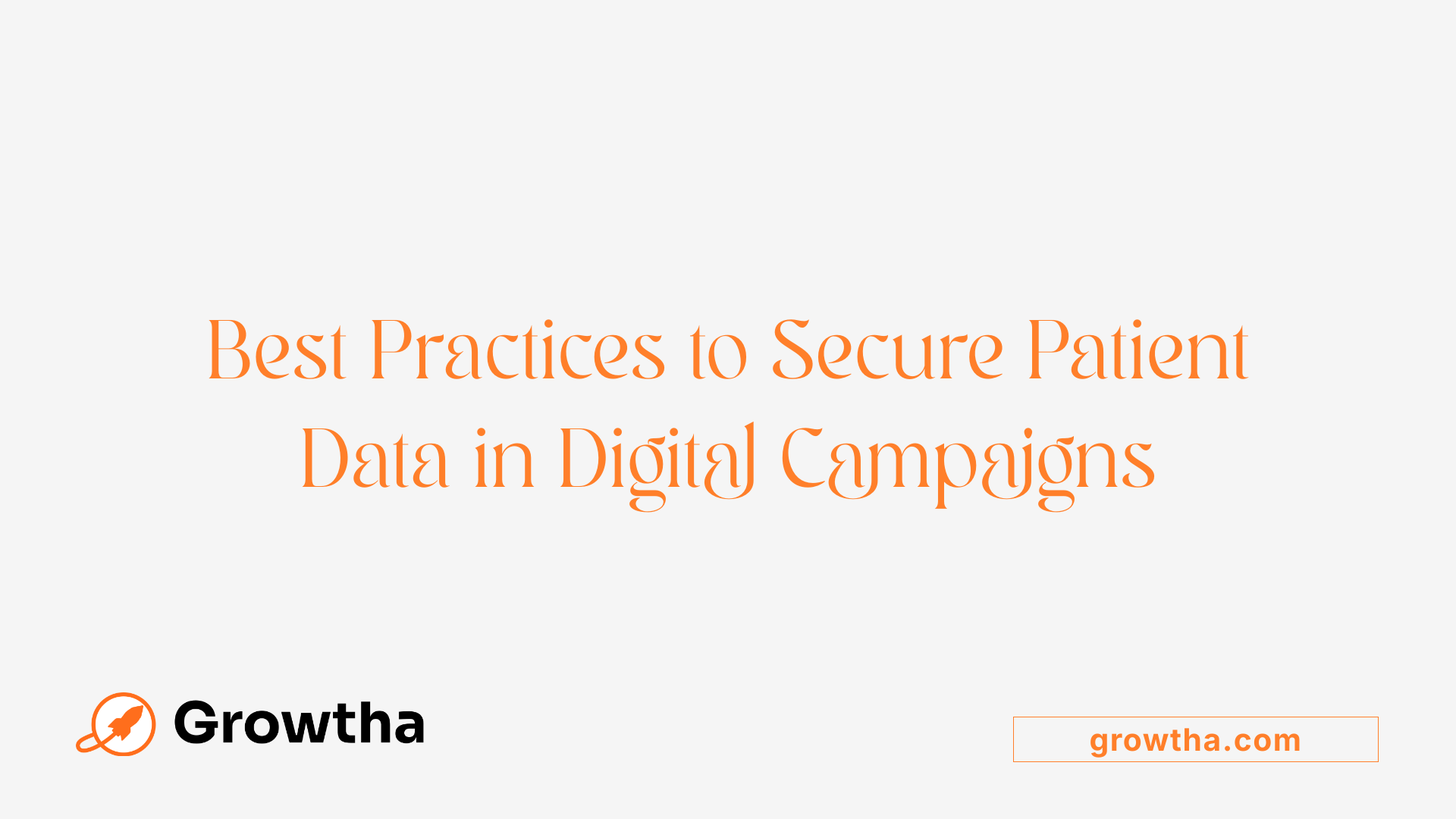
What are best practices for protecting patient data in digital health marketing?
Protecting patient data in digital health marketing is crucial for maintaining trust, complying with legal regulations, and preventing data breaches. Several best practices can help organizations safeguard sensitive information effectively.
First, implementing robust technical safeguards is essential. This includes data encryption both during transmission using Secure Sockets Layer (SSL) protocols and at rest through encrypted storage solutions. Employing multi-factor authentication (MFA) for access to sensitive systems enhances security by requiring multiple verification steps.
Second, organizations should ensure secure storage and controlled access to electronic health records (EHRs) and other protected health information (PHI). Access should be limited based on roles, applying the principle of least privilege, and monitored through audit logs.
Vendor management is another critical area. Healthcare entities must include strict data protection clauses in contracts with third-party vendors. Signing Business Associate Agreements (BAAs) with CRM providers, marketing platforms, and other service providers ensures compliance with HIPAA and aligns data handling practices with organizational policies.
Regular security assessments are vital to identify vulnerabilities. Conducting vulnerability scans, security audits, and penetration testing helps uncover potential risks. Maintaining an incident response plan prepares organizations to react promptly to data breaches or cyberattacks.
Staff training on data privacy protocols further reduces risks. Employees should be educated about HIPAA requirements, proper data handling, recognizing phishing attempts, and secure device usage.
Finally, transparency with patients about how their data is used, along with obtaining explicit consent for sharing PHI, aligns with ethical standards and legal requirements. Using privacy notices and clear communication channels fosters patient confidence.
Together, these practices create a comprehensive approach to safeguarding patient information in digital marketing efforts, protecting both the organization and the individuals they serve.
| Aspect | Actions | Purpose |
|---|---|---|
| Data encryption | Implement SSL/TLS for websites, encrypt stored data | Secure data during transfer and storage |
| Access controls | Use role-based permissions and multi-factor authentication | Limit unauthorized access |
| Vendor management | Sign BAAs, conduct due diligence on third-party providers | Ensure third-party compliance and security |
| Security audits | Conduct regular vulnerability assessments and audits | Detect and fix security weaknesses |
| Staff training | Educate employees on privacy laws and security best practices | Reduce human error and insider threats |
| Transparency & consent | Clearly inform patients about data use, obtain explicit agreement | Build trust and ensure legal compliance |
Adhering to these guidelines aligns digital marketing efforts with legal regulations like HIPAA, GDPR, and CCPA. This approach not only protects sensitive health information but also enhances patient trust and the organization’s reputation.
Challenges in Maintaining Patient Confidentiality Online

What challenges exist in maintaining patient confidentiality in digital marketing, and how can they be addressed?
Protecting patient confidentiality in digital healthcare marketing is increasingly complex due to the nature of online data. Digital footprints related to health can be invisible, lasting forever, and highly marketable, which complicates privacy efforts. Data breaches and unauthorized access—whether through hacking or insider threats—are major concerns, especially as healthcare organizations often work with third-party vendors that may have vulnerabilities.
The risk of re-identification persists even when data is anonymized. Advanced inference techniques can sometimes piece together de-identified information to identify individuals, raising issues of consent and ownership. Additionally, the lack of uniform US regulations comparable to the GDPR's strict privacy protections leaves gaps that could be exploited or overlooked.
Emerging technologies such as AI and big data further heighten these challenges. These tools aggregate vast amounts of data from various sources, increasing the risk of misuse and discrimination. Sensitive health information could be inferred without explicit consent, potentially leading to social harm.
To address these challenges, healthcare organizations should implement robust security practices. These include encryption of data, multi-factor authentication, and regular security audits. Staff training on privacy policies and procedures is vital to prevent insider threats. Transparency in privacy policies and clearly obtaining informed consent from patients are also necessary measures.
Moreover, advancing legal protections through comprehensive frameworks is crucial. Stronger laws and regulations can enforce accountability and ensure that patient data remains confidential. Building public trust requires a combination of technological safeguards, transparent communication, and strong legal standards to navigate the evolving digital landscape in healthcare marketing.
Ethical Responsibilities and Respect for Patient Rights
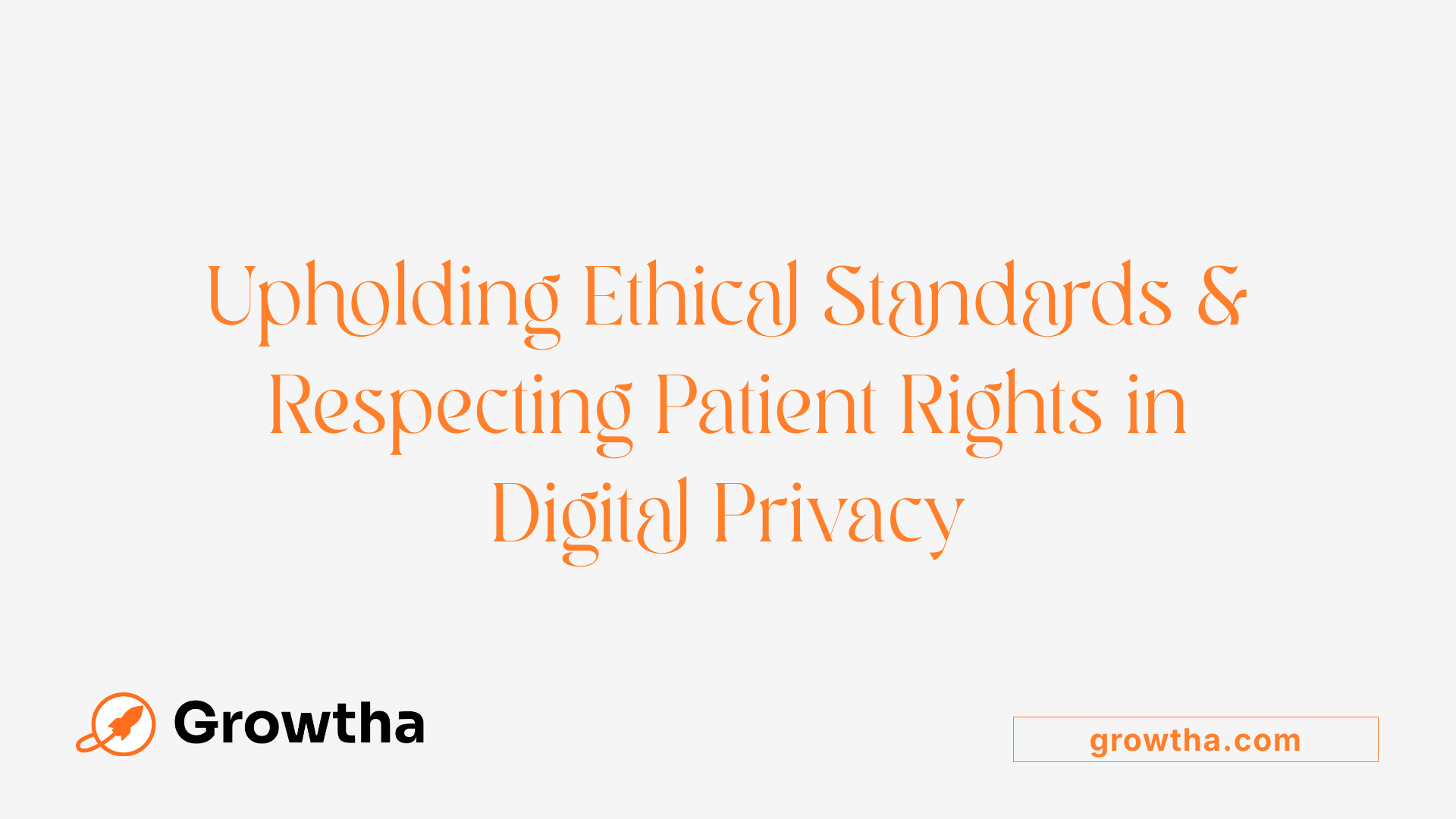
What ethical considerations are involved in handling sensitive patient information online?
Managing patient data in digital healthcare settings brings significant ethical responsibilities. One of the primary concerns is safeguarding patient confidentiality; healthcare providers and marketers must ensure that personal health information (PHI) is protected against unauthorized access and breaches. This involves implementing strong encryption, strict access controls, and secure storage protocols.
Informed consent is essential before using or sharing health data. Patients should be fully aware of how their information will be used and must actively agree to data collection and sharing practices. Transparency about data practices builds trust and respects patient autonomy.
The rise of advanced technologies like AI and third-party platforms adds complexity, raising risks of data misuse, bias, and exploitation. These issues demand vigilant oversight, clear policies, and responsible data handling to prevent misuse or discriminatory practices.
Legal regulations such as HIPAA in the U.S. and GDPR in Europe serve as frameworks to protect patient rights but are not foolproof. Limitations in existing laws mean that ongoing updates, rigorous compliance, and ethical standards are vital to adapting to technological advances.
In essence, handling sensitive patient information responsibly requires balancing innovation with respect for individual privacy rights. Healthcare organizations must continuously monitor security practices, ensure legal compliance, and uphold ethical principles to maintain public trust and promote ethical healthcare marketing.
Resources for Healthcare Providers on Privacy Standards and Protections
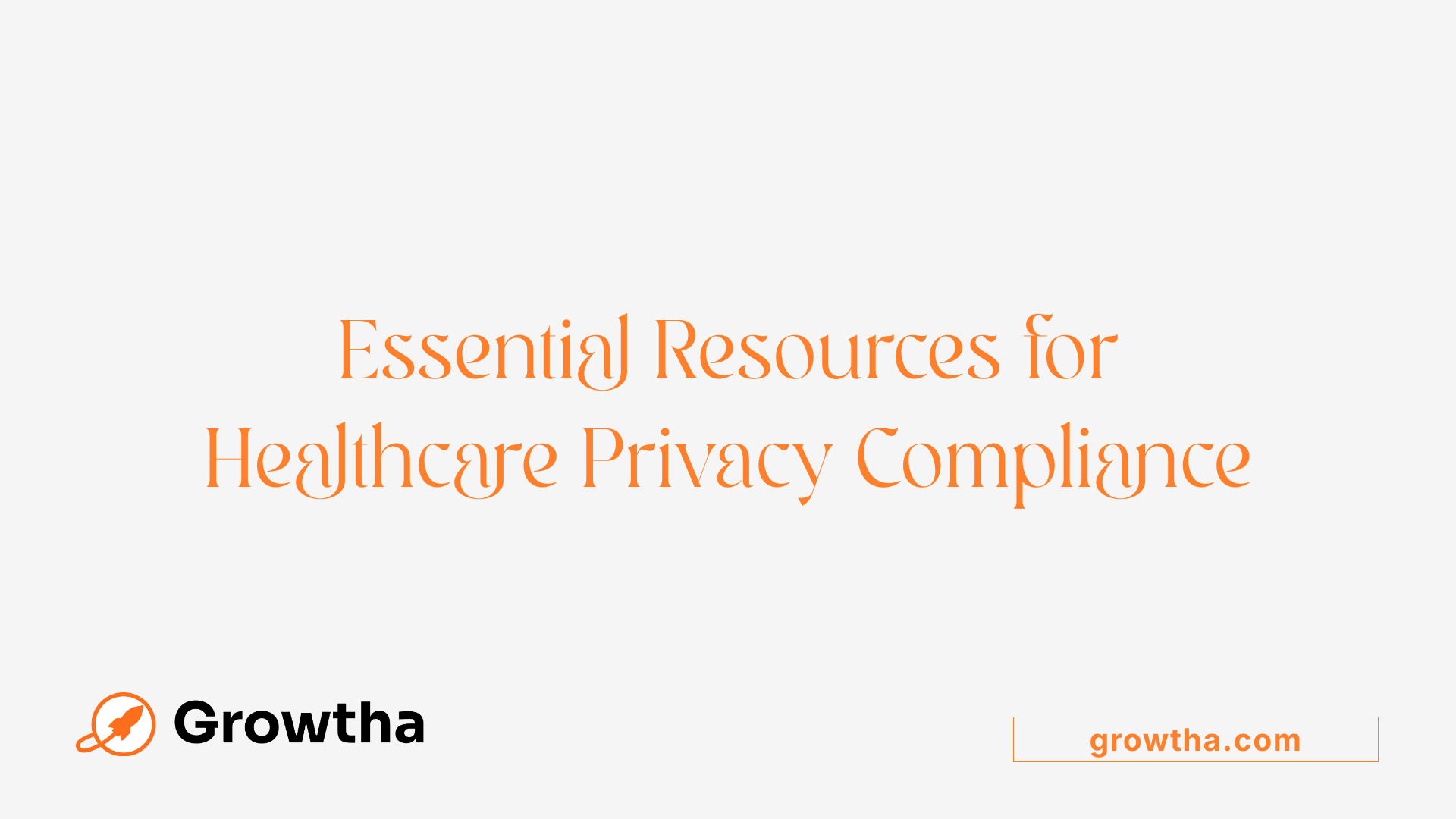 Healthcare providers seeking to enhance their understanding of privacy standards can access a wealth of educational resources from trusted organizations dedicated to healthcare compliance. The Department of Health and Human Services (HHS) Office for Civil Rights (OCR) plays a central role by providing detailed guidance on HIPAA compliance, privacy rules, and security risk assessments. These resources help providers understand how to properly handle protected health information (PHI) and safeguard patient data.
Healthcare providers seeking to enhance their understanding of privacy standards can access a wealth of educational resources from trusted organizations dedicated to healthcare compliance. The Department of Health and Human Services (HHS) Office for Civil Rights (OCR) plays a central role by providing detailed guidance on HIPAA compliance, privacy rules, and security risk assessments. These resources help providers understand how to properly handle protected health information (PHI) and safeguard patient data.
Professional associations also offer valuable training and certification programs. For example, the American Health Information Management Association (AHIMA) offers courses and certifications like Certified in Healthcare Privacy and Security (CHPS) and Certified Healthcare Privacy Consultant (CHPC). These programs include practical tools such as privacy guidelines, templates, and risk assessment checklists to support healthcare teams in implementing effective privacy measures.
The Healthcare Compliance Association (HCCA) is another key organization. It hosts conferences, publishes comprehensive handbooks, and offers continuing education courses centered on healthcare privacy and compliance issues. These educational opportunities are designed to keep healthcare professionals informed about the latest legal requirements and best practices.
Furthermore, the American Medical Association (AMA) provides guidance focusing on ethical standards, patient communication, and legal responsibilities related to privacy. Their resources aim to help physicians and healthcare providers navigate complex privacy laws while maintaining trust and transparency with their patients.
By leveraging these educational offerings, healthcare providers can better understand how to protect patient privacy, ensure legal compliance, and foster trust through responsible data management and ethical marketing practices.
Preserving Trust: The Path Forward
In the realm of digital healthcare, safeguarding patient privacy is not just a legal obligation but an ethical necessity that underpins trust, transparency, and the integrity of healthcare delivery. As technology advances and digital marketing becomes increasingly sophisticated, healthcare providers must prioritize robust privacy protections, adhere to evolving regulations, and foster open communication with patients. Through implementing best practices, staying informed with educational resources, and embracing innovative, privacy-preserving strategies, the healthcare industry can navigate the complexities of online marketing while respecting and protecting individual rights. Ultimately, respecting patient privacy ensures that digital health initiatives serve to strengthen the health system, enhance patient engagement, and uphold the core values of medicine—confidentiality, trust, and compassion.
References
- The Importance of Patient Privacy in Online Marketing - ProfileTree
- The Importance of Data Privacy in Healthcare Digital Marketing
- Balancing Between Privacy and Patient Needs for Health ...
- The Importance of Patient Privacy and Data Protection in the Digital ...
- How to protect patient privacy in the digital age - Tebra
- What Privacy Regulations In Healthcare Mean For Digital Marketing
- Making patient privacy and data security a priority in telehealth ...
- HIPAA compliance in digital marketing - Paubox







